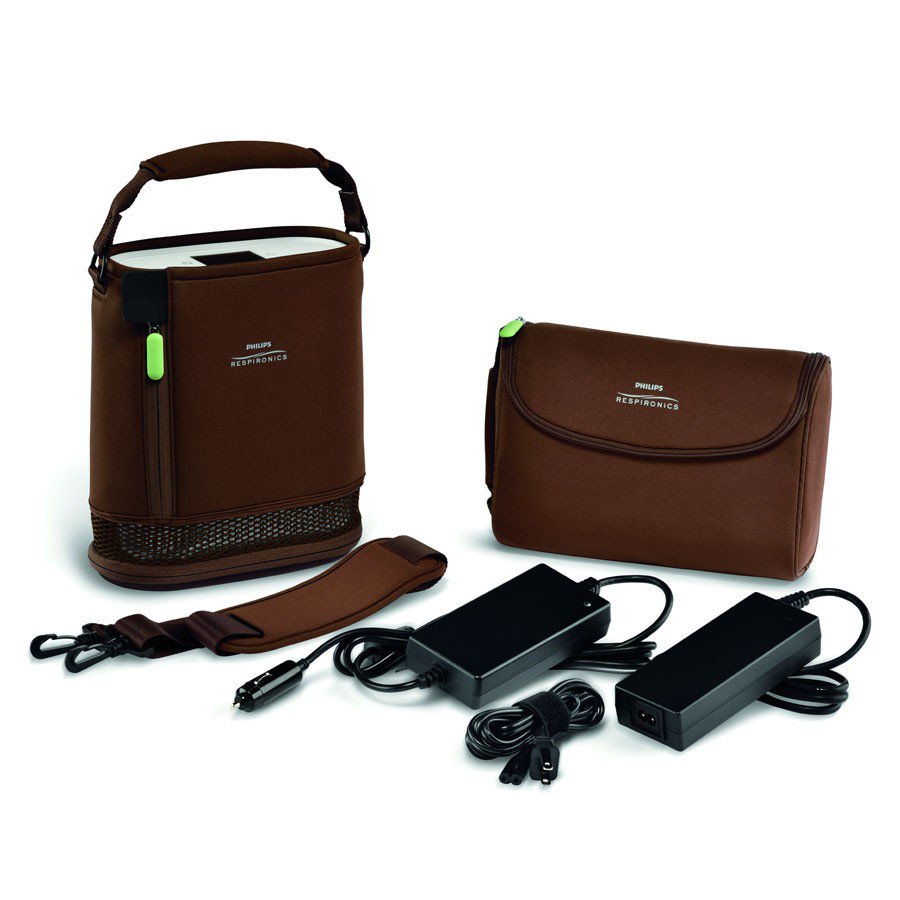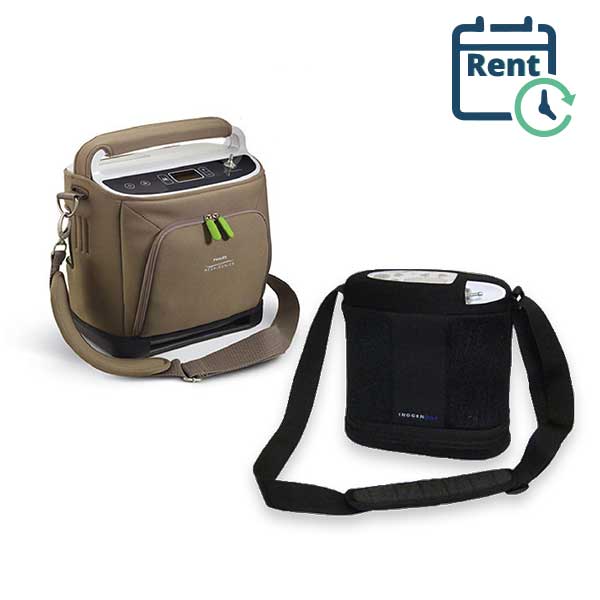The 20-Second Trick For Portable Oxygen Concentrators
Wiki Article
Not known Facts About Portable Oxygen Concentrators
Table of ContentsThe Ultimate Guide To Portable Oxygen ConcentratorsThe Of Portable Oxygen ConcentratorsWhat Does Portable Oxygen Concentrators Mean?Everything about Portable Oxygen Concentrators
Stationary oxygen concentrators were once the requirement, however these tanks might weigh 50 pounds and were extremely cumbersome (Portable Oxygen Concentrators). Currently, portable oxygen concentrators do the job, and they can fit into a handbag or bag! The only point you should remember is that mobile concentrators have extra restricted oxygen shipment capabilitiesThere are two main types of mobile oxygen concentrators: pulse dose and continuous flow. As the name suggests, pulse dosage concentrators provide oxygen periodically, only triggering when you breathe in. This kind of device is typically advised for COPD individuals with minimal oxygen requirements, as the amount of O2 that a pulse dosage concentrator can supply is reasonably reduced.
This gadget can provide up to 3,000 m, L of oxygen every min, while pulse dose tools tend to cover out at 1250 m, L. Continuous flow gadgets are the go-to for most COPD people, as they're ideal for people who need two to five litres of oxygen a minute.
Since you have this overview to the different types of portable oxygen machines, choose the very best device with the aid of your physician. You can explore our blog sites to learn even more concerning the types of portable oxygen readily available and our other items, like tubing and cannulas. Or you can call us directly with any type of certain questions you may have.
The Basic Principles Of Portable Oxygen Concentrators
We understand Americans use domestic versions in home care situations. We asked yourself how well these portable oxygen concentrators would certainly operate in medical facilities. POC concentrators enhance the proportion of oxygen in ambient air people inhale, whenever they require an increase. Private-use ones are small adequate to lug about, and may help avoid the requirement to check out busy clinics and health centers.When it pertains to portable oxygen treatment, there are two primary choices for shipment. These are mobile oxygen cylinders which have compressed oxygen gas, or oxygen concentrators, which use a battery powered system to compress and filter air, in order to produce a consistent supply of focused oxygen. In this blog post, AMS Compound Cylinders Technical Supervisor, Tony Morrin, compares the 2, looking at the benefits and drawbacks of each oxygen delivery system for NHS medical oxygen customers in regards to person freedom.

Portable Oxygen Concentrator Oxygen pureness is consistently higher when supplied from cyndrical tubes it informative post never ever goes down listed below 99. 6%, no matter the circulation price needed. In battery-powered concentrators, purity is impacted by circulation price, and may be 90% or much less, depending upon the tools. Whilst oxygen concentrators can be beneficial for individuals that call for a reduced circulation of oxygen, cylinders give higher concentrations that can be better for people with high circulation demands.
Facts About Portable Oxygen Concentrators Uncovered
Both systems need the person to carry around tools. For cylinders, this will consist of lugging a bag (and occasionally a trolley) and for portable oxygen concentrators this will consist of the bag, cart and power battery charger. Weight wise, portable oxygen concentrators can be comparable in weight, or often, lighter than typical aluminium cyndrical tube systems.
They will certainly need to enhance considerably if they are to give the exact same degree of performance as similar composite cyndrical tubes. Oxygen constantly brings a safety risk. On one hand, need to cylinders spring a leakage, they can create an oxygen abundant atmosphere that could lead to an increase in fire risk.

The difference is that there are significant upfront costs to purchasing a mobile oxygen concentrator, but lower running prices making use of cyndrical tubes makes it possible for the purchaser to spread the cost over a prolonged duration of time. One minor drawback of a portable oxygen concentrator is the noise mobile systems make a substantial amount of sound during procedure, which many individuals locate distracting.
Some Known Factual Statements About Portable Oxygen Concentrators

Our high-quality carbon composite cyndrical tubes supply high pressure (300 Bar), reduced weight, and NLL (Non-Limited Life) efficiency, and are certified for usage worldwide. Additional information concerning AMS Composite Cylinders Ltd can be discovered at .
Oxygen concentrators are designed with customer flexibility in mind. Whether it's a desktop computer version for home usage or a smaller, light-weight model for on-the-go, these tools permit clients to relocate easily without being connected to a fixed system. Especially for the ones especially designed for transportability, patients can carry them around, assisting in traveling and everyday tasks effortlessly.
One of the significant benefits of making use of an oxygen concentrator is the elimination of the regular need to refill oxygen storage tanks. This not just minimizes the logistical challenges and recurrent costs connected with refills however also makes certain that the individual has an extra predictable and consistent resource of oxygen. Oxygen concentrators are made to fit seamlessly right into the home setting.
Report this wiki page